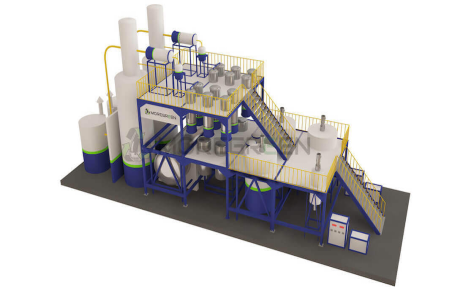The world can’t do without waste oil disposal and oil recycling. Here’s why
We all know that waste is something we don’t need or something that does no longer serve its purpose. So, we have waste oil, and it is divided into two parts: industrial waste oil which accounts for 45% of all the waste oils produced, and transportation waste oil which represents the remaining 55%. Now you may be asking, why does oil get wasted often and in large quantities? Whatever mobile or immobile device you have that uses oil, that oil needs to be changed often or it could cause severe damage to the machinery. This machinery may include ships, cars, motorcycles, spacecraft, complicated vessels like chemical plants or even oil refineries; all these machinery needs oil and that oil needs to be changed regularly.
People all over the world have been using oil for a very long time. While we can adequately say that oil usage has created massive opportunities for us, has made everything convenient, and even given us energy, the remaining part of that oil, which is the waste oil, is doing more harm than good.
When people hear of waste oil, their mind automatically drifts to engine oil because that is the commonest example, but there are several types of waste oil and they include plastic oil, waste industrial oil, plastic oil, and inferior liquid oil.
In their right capacities, these oils can do wonders, but their waste poses a lot of threat to human beings and the environment and these wastes are produced at alarming rates. For instance, 50 % of produced lubricating oil turns to waste due to some impurities and oxidation. This means that lubricating oil worth millions will turn to waste this year.

The hazardous problems that waste oil gives to the environment are so much, that more and more people become aware of it every single day because of the visible effects around. The first issue wastes oil causes is severe environmental pollution. When the oil is no longer needed, people pour it away (on the ground) and this oil penetrates the soil. Part of it will mix with rainwater and go further down to pollute the water source or will get decomposed by microorganisms. Either way, they are causing harm to both plants, animals and human beings.
So, what do you do with waste oil? Do you just discard it and allow it to cause further damage to the environment?
This is where waste oil recycling and proper disposal methods come in.
The truth is that waste oil is a valuable natural resource, and once people can change the way they see and dispose of the oils, the rate of environmental pollutions will drastically reduce. Furthermore, because of the high prices, most oil-producing countries sell their products, a lot of governments are opting for cleaner, safer and less-expensive ways of providing these oils for their countries. By using a waste oil distillation plant, we can properly convert waste oils into high-value diesel and gasoline through high-temperature distillation and catalytic pyrolysis. Details are here.


